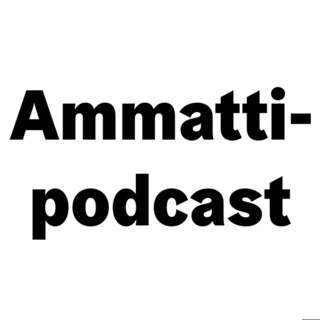
111: Drowning in Case Feedback
We find many candidates drown in feedback. They want as much good feedback as possible and speak to as many people as possible thereby receiving lots of detailed and sometimes average feedback on their performance. There are two problems here. First, much of this feedback will likely be contradictory and possibly misleading. Second, the candidate will literally drown in this feedback usually consisting of a 2-page list of improvement areas. We expect our candidates to always prioritize the top 3 issues and tackle them, as explained in this podcast. It is vital to follow this 80/20 principle and ignore the majority which will be of little value overall.
31 Joulu 20128min

110: Disclosure Rules on Resumes
Candidates sometimes divulge too much confidential details, or too little in interviews, resumes, cover letters and LinkedIn profiles. These are the rules for disclosure. It is important to remember that disclosing confidential information merely indicates to McKinsey that you cannot be trusted with their own client information. Moreover, disclosing information on your resume and hiding it from your LinkedIn merely means you are aware of the ethical breach you are making. It is important to avoid these problems at all costs. From the beginning, be the person that is worthy of a consulting firm.
25 Joulu 20127min

109: Build Hypotheses With Decision Trees
Building hypotheses is very difficult. Most candidates in a McKinsey, BCG et al interview would not know when to build the hypothesis, what comprises the hypothesis, how to test if it is MECE etc. This simple technique is one way to build hypotheses and used on real consulting engagements. It was developed to help candidates prioritize their analyzes and ensure the hypotheses are MECE. When practicing this technique note that the development of the decision tree must be done quickly and cleanly.
19 Joulu 20129min

108: Speed is the Wrong Focus Area
Far too many candidates focus on being faster. That is another myth. Speed is an outcome of having good technique. So if you are slow, deconstruct your technique, analyze weaknesses and develop a new way to solve arithmetic. That is key. Unless your technique improves aka "your process to solve math," you will never improve. We explain how in this podcast. Moreover, if an interviewer or practice partner indicates you are slow, think carefully if your technique can be improved, versus merely trying to speak faster. Note, there are many different techniques to solve arithmetic problems so do not search for the "best" technique. Find one that works for you..
13 Joulu 20128min

107: Demand Side Estimation Myth
The myth of demand side estimation cases is the greatest mistake taught in case books worldwide and is probably the worst technique a candidate should be using. Candidates around the world are taught that all estimation cases are market sizing cases and all market sizing cases must be done from the demand side. The problem is that not all estimation cases are market sizing cases and not all market sizing cases should be done from the demand side. Fortunately, it is easy to fix
7 Joulu 20129min

106: Invisible Presentation Technique
Solving a case while talking an interviewer through your thinking (written or otherwise) is, for the interviewer, a little like trying to understand a presentation without seeing the slides. Or at the very least seeing untidy slides – that is, assuming your working sheets are messy. Here we talk through the anatomy of a case dialogue pointing out key mistakes candidates make and a very simple technique they can use when communicating in case interviews.
1 Joulu 201212min

105: Case length and details
When we ask candidates for more details in their resume, fit responses and cover letter, they always write longer sentences. There is an important difference between "more details" and "greater length". Most candidates are accustomed to spending just a few minutes on a thought and then writing up long and poorly structured sentences. When we ask for more details, we require more facts in the case interview or fit answer and this, crucially, usually means denser and shorter answers.
25 Marras 20126min

104: Do Not Read Your Interviewer
It is impossible to read the personality of an interview and we discuss the typical errors candidates make in trying to read too much into the behavior of interviewers: quiet, asking questions, rude, etc. One thing we always caution candidates is to be wary of assuming the friendly person likes them or that the unfriendly person does not like them. Friendliness does not equate to "like" and people display their emotions in very different ways. So, if the interviewer is very friendly, it could go either way.
19 Marras 20129min





















